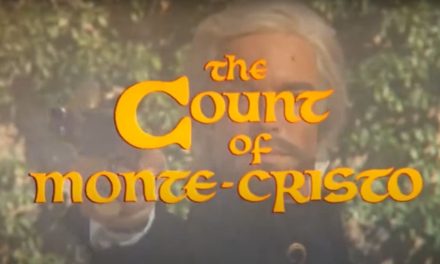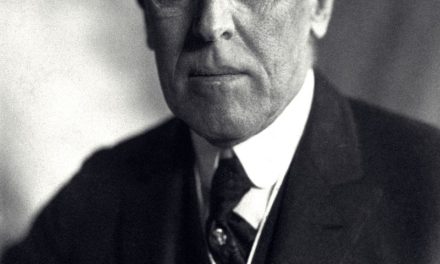Greetings, Otterites! Robert here with yet another in my musings about philosophy. I want to do some more thinking and talking about John Locke. My last post made it seem like I didn’t appreciate his work, because I spent so much time critiquing him. When I spend time on a subject here on the blog and on the podcast, I’ll do that.
Why?
It’s not because I think I’m so much smarter than Locke or Voltaire or von Clausewitz. On the contrary. BUT… I think the podcasts and these posts are going to be far more interesting when examining where these guys fall a little (or a lot) short. Anyone can sit back and say, “I agree with that dead smart guy.” I’d like to think in my role as The Hammer, that I can offer something to think about instead of just saying someone is right or wrong. Even when I agree with someone’s positions, my mind wants to take it to the next step and expand on their ideas.
So, what about Locke? What does he have to say that gets us to overlook his inconsistencies and hypocrisies?
Well, he’s acknowledged the Father of Liberalism.
If you’ve listened to us and paid attention, you’ll understand how ironic and yet appropriate that we would celebrate something like that. It’s ironic because we tend to be to the conservative side of most issues. Yet, it’s appropriate because we also acknowledge the value and truth in what is better termed as classical liberalism.
Today’s usage of the terms conservative and liberal have little to do with the philosophical origins of the terms. The classic definition of a liberal is about liberty. Hence, liberal. Today’s political parties in the United States both espouse a liberal philosophy in their core positions. Democrats will say keep your hands off my body. It’s my choice. Republicans will say keep your hands off my money. It’s my choice how to spend it. Sure, both are for restrictions some personal liberties, so neither one is perfectly liberal or conservative.
When we acknowledge that being philosophically liberal about some/a lot of things is part and parcel of American political and social life, it’s easy to see how Locke’s writings still influence us today. His work on what it means to be an individual, the tabula rasa or blank slate at birth, is key to understanding his other positions. He is the eminent mind on empiricism. In other words, only what can be known from one’s senses, tested and reproduced can be true. It’s basically the Scientific Method applied to personal knowledge and the concept of self.
This lack of innate knowledge, and anything else really, means that we are all self-made. We become what we make ourselves by the choices we make in life and what we do with them. This is something that me and the guys fully agree with. It’s Free Will. In other words, the actions we take and our responses to people and events in our lives is entirely up to us. We choose how to respond when someone cuts us off on the freeway. We choose how to respond when complimented. We choose how to respond to everything. Even when we respond emotionally, it’s usually because we let ourselves do that beyond the initial reaction.
This is the key to what used to be called Rugged Individualism. That’s probably not looked upon so favorably by the socialists and whiny-@$$ crybabies that seem to dominate so much today. However, I submit that Rugged Individualism is the proper way to understand what it means to be fully human and to understand the inherent dignity of the human person.
Side note to Marty: See, I can make anything relate to the inherent dignity thing.
Let’s define Rugged Individualism so we have a common understanding. To me this is not about being so self-sufficient that I don’t need anyone else. That’s one-sided. Even Marty, the resident curmudgeon among us and most likely to want to be left alone by the gummint, agrees that we’re communal creatures. We thrive on relationships. We NEED relationships, and there’s truth to the idea that we are best when in relationships. So, yeah. R.I. isn’t about just me. Or you.
Rugged Individualism is about being the best person you can be through your own efforts to constantly improve yourself. You can’t rely on others to improve you. They can, should and will help; but they can’t do it for you. Self-improvement is a redundant phrase in some ways. Seeking constantly to improve ourselves means we’re working on being better at doing things, better at how we think, better at dealing with our feelings and being better at our relationships.
Note that for me and Frannie for sure this last part takes on a theological truth as we seek to serve our communities because of our deep faith and ministries. Not to say that Marty doesn’t care about the community and the well-being of others. Don’t take it that way at all. We all recognize that there are many who need some kind of help, whether temporary or more long term. The degree of that help is where so much of our political and social strife in this country comes from unfortunately.
So, to be a Rugged Individualist ironically also means you want everyone to be the best they can be. And you also want to help others get there, because being a Rugged Individualist is more about being fully human, fully you, not about it all being ABOUT you. That would make you a narcissist. Selfish. And a whole lot of other things I probably shouldn’t put in writing.
The negative view of a Rugged Individual would be one that far too many take to as an aspiration. It makes them think of others as tools and not really “real” in the sense that they matter or that they could ever matter except in how they could help or hurt you. We’ve unfortunately seen that in society, politics, sports and all the various kinds of media. That caricature isn’t what Rugged Individualism should be about.
Remember, if we aspire to liberty for me, then we have to aspire to liberty for thee as well. If we grant that, then we have to acknowledge there is at least an inherent responsibility to go with those rights, because all rights come with reciprocal responsibilities. Every. Single. One. Those responsibilities are to not unnecessarily impede this quest for others by unethical or immoral means. Don’t plot against your neighbor. Don’t conspire to harm your neighbor and so on. In fact, help your neighbor when you can, because it’s the right and good thing to do and because you can. You can choose to respond in that way.
Liberty is a two-way street. I have to want you to be free to be the best you that you can be while you want the same for me. The problems we face as a nation come up when we either no longer care about what happens to others, especially those we disagree with, or we want the best for us at the expense of others. I don’t think that’s what the United States was built on. The very name of this country, so rooted in Locke’s ideas at its founding, is about being in it together as we seek to better ourselves and be free from a distant oppressing power.
United. Together. Yet Individually free to be what we want within the bounds of the common social contract. Admittedly, those bounds are not permanently set. Things change, mostly for the better. After all, our founding documents say one thing, but didn’t fully embrace those ideals in practice for all. We’ve been slowly getting better. Moving forward. We may take a step back now and then, but overall, we’re moving in the right direction.
None of this is possible for a people not rooted in Rugged Individualism. They’re the ones who create the genuine change in society and the world. They’re the doers, creators and engines that drive things. Whiners and complainers may point out what’s wrong, and they may be right about it. But they rarely seem to actually fix things in a way that works best for the most people.
So, there you have it. John Locke. Father of Liberalism. Grand-father of the United States. Philosophical dynamo behind the forward progress for all of us to truly be free and equal to and with one another, to respect each other’s inherent dignity.
BAM!!!!
Hammered.





Told you that you were the best writer of the group. And yes, Rugged Individualism is always about the inherent dignity of the human person. There’s no dignity in groupthink.
Why thank you good sir.
Great line, by the way. Love it. No dignity in groupthink. Truly a condemnation of the extremes of the Left and the Right in any and all subjects.